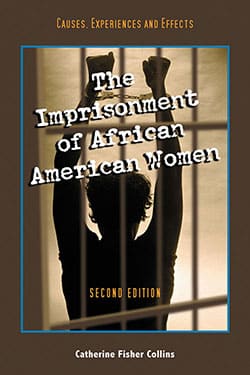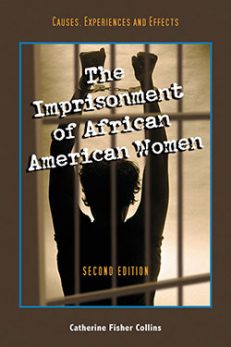The Imprisonment of African American Women
Causes, Experiences and Effects, 2d ed.
Original price was: $29.95.$14.99Current price is: $14.99.
In stock
About the Book
This book reviews the disproportionate number of African American women making up the United States’ prison population, looking particularly at how the nation’s prison systems are ill-equipped to meet the basic needs of its ever-growing population. Topics covered include reasons why young African American women are first drawn into criminal behavior; trends connecting incarceration to physical, emotional, or sexual abuse; the effects of incarceration on inmates’ families and children; and possible preventive measures or alternatives to imprisonment.
About the Author(s)
Bibliographic Details
Catherine Fisher Collins
Format: softcover (6 x 9)
Pages: 210
Bibliographic Info: diagrams, tables, bibliography, index
Copyright Date: 2010
pISBN: 978-0-7864-3384-1
eISBN: 978-0-7864-5611-6
Imprint: McFarland
Table of Contents
Acknowledgments vii
Diagrams x
Tables xii
Introduction 1
1. The Development of the American Criminal Justice
System and Its Impact on African American Women 7
2. The Overrepresentation of African American Women in
Criminal Justice 12
3. Pathways to Delinquency and Imprisonment 17
4. The Abuse of African American Women 42
5. Criminal Behavior of African American Women 71
6. Children of Imprisoned African American Women 94
7. Regional Pathways to Imprisonment for African American
Women 109
8. Health Care Pathways and Issues for African American
Women in Prison 149
9. The Final Pathway: The Execution of African American
Women, Past and Present 159
10. Conclusions and Recommendations 173
Bibliography 177
Index 197
Book Reviews & Awards
Choice Outstanding Academic Title
“recommended for all collections”—Choice; “child care, medical conditions, the children of women prisoners, the treatment of incarcerated women in Third World countries, alternatives to prison and future trends are all discussed”—Criminal Justice Abstracts; “Collins’ indictment of current penal arrangements and the inadequacy of treatment of African-American female offenders (and the detrimental effect of incarceration on their children) places the existence and interaction of race, gender, and class hierarchies at the heart of differential enforcement”—American Studies.






